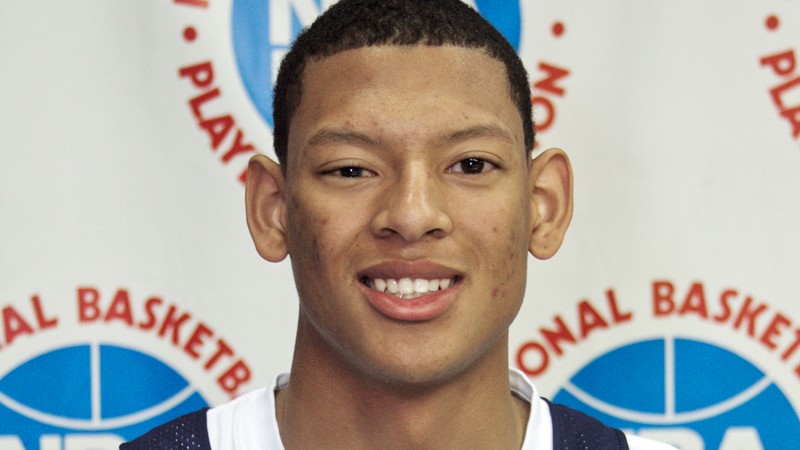WACO, Texas — It’s easy to see how Baylor University’s Isaiah Austin helped his team reach this year’s NCAA tournament. He’s 7 feet 1 inch, has averaged 12 points a game and blocked 114 shots this season — the best in his conference.

While his height advantage is obvious, Austin does all this with one distinct disadvantage.
“I’m blind in my right eye,” he says. “This is a prosthetic eye that I have right here.”
Austin has been blind in that eye since he was 16 — the result of a torn retina he suffered two years earlier while playing basketball.
“I felt like quitting, I felt like giving up,” he recalls. “I was scared that college coaches weren’t going to recruit me if they found out.”
His mother, Lisa Green, gave him two choices.
“Make it your excuse and tell people you have this injury and feel sorry for me, or, you know, make it your story,” she says. “And if you make it your story, how many people can you inspire through this?”

Austin decided to make it his story and keep playing, but his depth perception was off.
“Sometimes when I was practicing, I would airball, and sometimes I would just hit the side of the backboard,” he says. “But that just came down to a lot of reps.”
Asked how frustrating it was to have to learn the skills, all over again, Austin says, “For that to be taken away from me for that time was hurtful to me. But I got used to it, I got it back.”

By high school, Austin was one of the nation’s top five players, so good that Baylor recruited him knowing he could see out of only one eye.
Now in his second year, the choice his mother gave him has become a bit clearer.
“Kids have come up to him and said, ‘You know, you inspire me,'” Green says. “It’s incredible.”
“My mom always tells me that nobody is going to remember you for the great basketball player you are, but they will remember you for the character you have off the court and for all the lives you changed,” Austin says.
Austin is expected to enter this year’s NBA draft, an opportunity to take his talents — and his story — to the next level.







